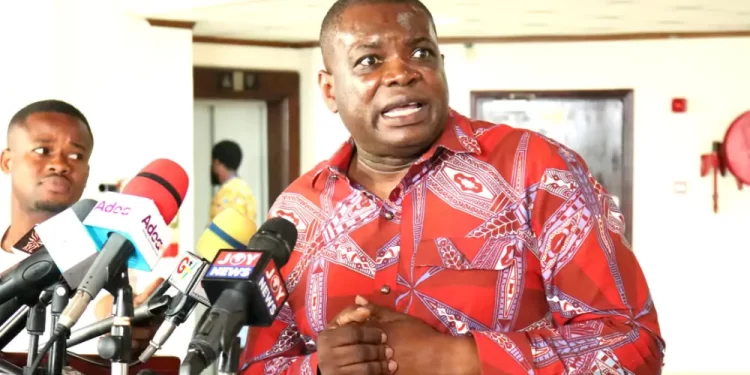The Minority in Parliament has threatened to haul the Administrator of the Scholarship Secretariat before Parliament in the coming days over the two-year arrears owed bursaries of the Graduate Students Association of Ghana (GRASAG).
The caucus contends that despite the allocation of GH¢223 million budget for the scholarship secretariat, the government is yet to release funds for the payment of GRASAG bursaries.
Speaking at the handing over ceremony of the GRASAG at the University of Ghana, Legon, the Minority Chief Whip, Governs Agbodza said the group will deploy all available means to ensure the funds are paid by the government.
“The Minority will in the coming days go through the right processes to get the administrator of the Scholarship Secretariat to answer why the bursaries of the GRASAG are in arrears for two years. Because even as we are concerned those monies have been made available. We can only do this based on the laws,” he stated.
Meanwhile, the Minority in Parliament has warned that Ghana’s high indebtedness to the International Monetary Fund (IMF) makes it a risky investment destination.
Ghana is currently the most indebted country to the IMF under the Poverty Reduction and Growth Trust, with an outstanding loan of 1,689 billion Special Drawing Rights (SDRs). This accounts for almost 10% of the total loans outstanding under the Trust.
The Ranking Member on the Finance Committee of Parliament, Isaac Adongo, said that Ghana’s high debt levels and low foreign reserves are making it difficult to attract foreign investment.
“If you look at our creditworthiness in terms of our net international reserves to cover those portfolios, Ghana is a risky country and the IMF itself is worried,” he said.
“But for the fact that Ghana has a track record of historically meeting its obligation to the IMF, these statistics alone [is enough] for you to know that Ghana will not qualify for an IMF programme,” he said.
Ghana’s high debt levels are a major concern for investors. The country’s public debt-to-GDP ratio is currently over 80%, and the government is running a large budget deficit. This means that the government has to borrow heavily to finance its spending, which makes it difficult to reduce the debt burden.
Ghana’s foreign reserves are also at a low level, covering less than one month of imports. This makes the country vulnerable to external shocks, such as a rise in commodity prices or a decline in the value of the cedi.
The government is currently negotiating a new program with the IMF. The program is expected to include measures to reduce the budget deficit, stabilize the economy, and promote growth. However, it is unclear whether the government will be able to implement the necessary reforms to qualify for the program.


